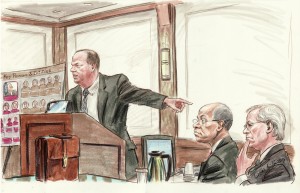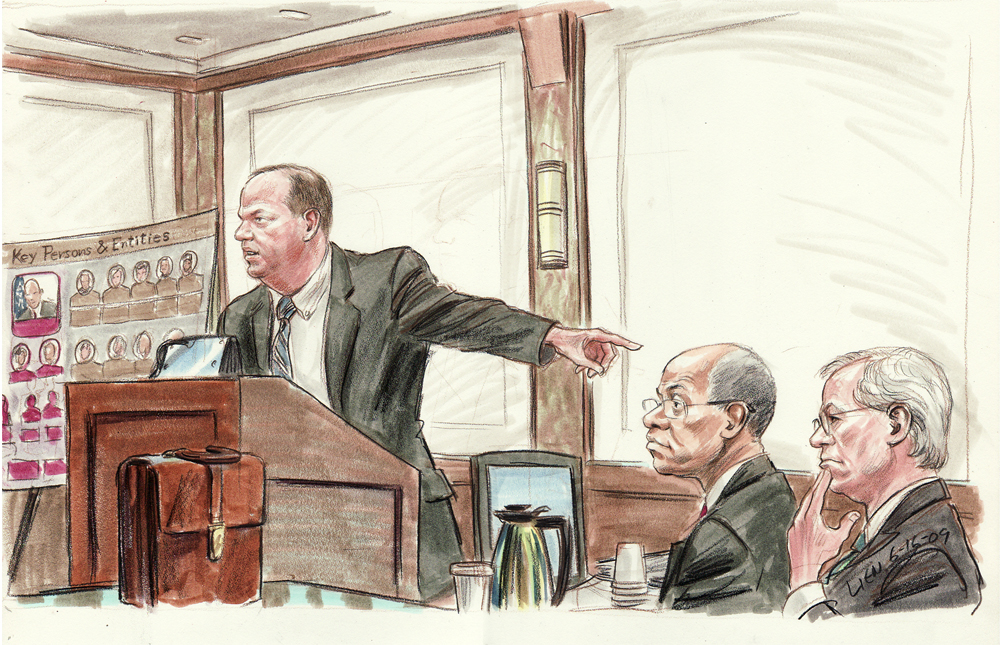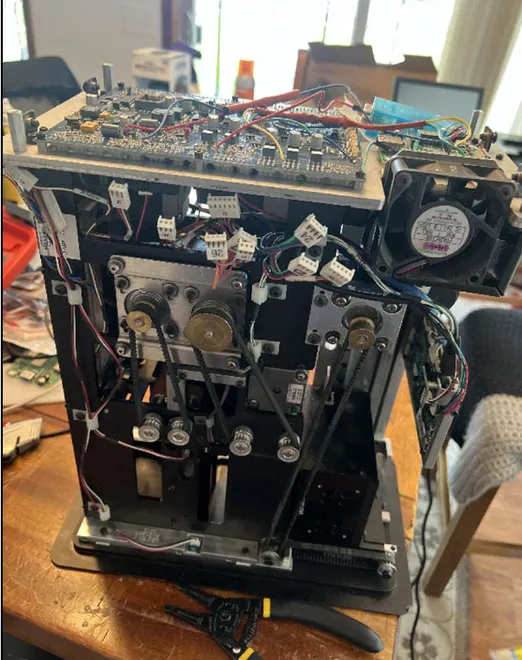
— A federal prosecutor in opening statements Tuesday morning portrayed ex-Rep. William J. Jefferson as a shakedown artist desperate for money to cover his messy finances that included $40,000 in bank overdraft fees and penalties and a $62,000 credit card debt.
“It is a startling and often disheartening account of public corruption at the highest levels of our government,” said assistant U.S. Attorney Mark Lytle.But Jefferson’s attorney Robert Trout responded during opening remarks saying that the government tried unsuccessfully to set up Jefferson in a sting and the ex-Congressman “did not take a bribe…did not solicit a bribe…is not guilty of any of these charges.”
“You will hear no agreement…in exchange for anything of value,” Trout said.
The salvos came at the start of trial before a packed courtroom. The trial is expected to last four to six weeks.
Prosecutor Lytle laid out the government’s case that alleges that Jefferson was involved in at least 11 corrupt schemes involving U.S. and African companies. He said in some circles the influential congressman was known as the “gateway to Africa.”
Lytle said in exchange for using his Congressional influence, Jefferson and his family received about $385,000 in bribe payments and they stood to ultimately get hundreds of millions of dollars. Jefferson faces 16 public corruption counts and has maintained his innocence.
Trout said the government tried to get Jefferson in a sting by having wealthy Virginia businesswoman Lori Mody wear a wire. Mody had invested in iGate, a Kentucky based high-tech firm and went to the FBI complaining that the company’s owner Vernon Jackson and Jefferson were ripping her off.
Once she started wearing a wire, Trout said Mody, at the FBI’s urging, kept trying to get Jefferson to bribe African officials to help promote iGate, which was selling a system that used copper wire for Internet and cable television.
“With a lot of time and a lot of wine they set out to bag a congressman,” Trout said.
Trout went on to say that Jefferson, who was trying to appease an “emotionally fragile” person, “foolishly” accepted $100,000 in marked FBI bills from Mody. But he said Jefferson had no intention of bribing the Nigerian vice president with the money.
“You may think the evidence raises ethical concerns,” he said. “He is not charged with violating House ethics rules.”
He said proof that Jefferson had no intention of bribing the Nigerian official was evident when the FBI found most of the money — $90,000 — in the freezer in his Washington home during a raid in August 2005. He said Jefferson wrapped the cash in a freezer and stashed it in food boxes to hide it from the housekeeper or an intruder.
But Lytle said the cash was never delivered to the the vice president Atiku Abubakar simply because of bad timing. He said Abubakar left town shortly after the money was handed over to Jefferson.
“This case is about …one of our government’s most powerful officials using his public office for private gain repeatedly,” Lytle said.
Later in the afternoon, the government called it’s first witness, Vernon L. Jackson, owner of the iGate company, who delivered some potentially damaging testimony to the defense. Jackson,56, is serving a prison sentence of more than seven years after pleading guilty to bribing Jefferson. He hopes to reduce his sentence by testifying for the prosecution.
Jackson, wearing an off-green colored prison jumpsuit, said Jefferson was incredibly helpful in promoting his high-tech company.
But at some point, he said, Jefferson suggested he hire his wife’s company, ANJ, to promote the business. Jackson agreed and signed a contract dictated by Jefferson that amounted to about $90,000 a year in consulting fees and a share of the company.
Jackson said Jefferson’s wife Andrea did a little work in the beginning, but vanished soon after while the congressman continued to aggressively promote the company.
He said he realized that it was improper to be paying Jefferson for his services, but said the Congressman was very powerful and effective.
And contrary Jefferson ‘s contentions that he was acting as a private citizen in business matters, Jackson said Jefferson was clearly acting as a Congressman and used his Congressional influence.
“I believed it was inappropriate,” he said of paying Jefferson for his services. “Yes it was wrong, flat out wrong.”





